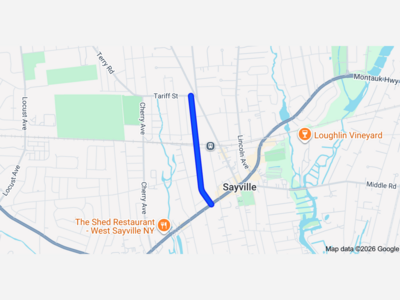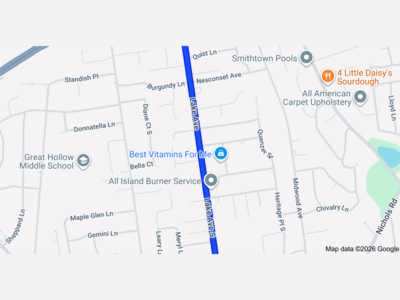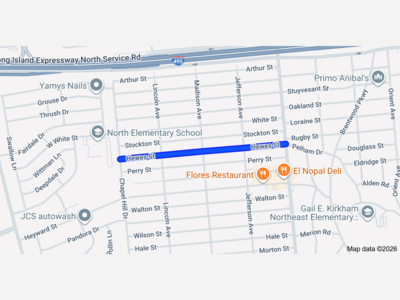Local Health Officials Confirm First Long Island Chikungunya Case; Source Under Investigation
NASSAU COUNTY— Nassau County health officials have confirmed a significant public health finding: the first locally acquired case of the rare chikungunya virus in a resident. The confirmation, which came from the New York State Department of Health’s Wadsworth Center, marks the first reported case of local transmission in New York State history and the first in the continental U.S. since 2019.
The individual, whose identity has not been released, began experiencing severe symptoms in August but reported no recent international travel to tropical regions where the virus is endemic. This means the individual was likely infected by a local mosquito that had previously bitten an infected traveler, a process known as local transmission.
A Focus on Investigation
The New York Department of Health (NYSDOH) and Nassau County health officials are conducting an intensive investigation to determine the precise source of exposure. Chikungunya is spread primarily by the Aedes aegypti and Aedes albopictus mosquito species, both of which are present in parts of downstate New York, including Long Island.
"Our Wadsworth Center has confirmed this test result, which is the first known case of locally acquired Chikungunya in New York State," said State Health Commissioner Dr. James McDonald. "While the risk remains very low due to much colder nighttime temperatures limiting mosquito activity, we urge everyone to take simple precautions to protect themselves and their families."
To date, routine mosquito surveillance has not detected the chikungunya virus in local mosquito pools, and health officials stress there is no evidence of widespread ongoing transmission in the area.
What is Chikungunya? Understanding the Symptoms
Chikungunya is a viral disease with symptoms that typically begin 3–7 days after an infected mosquito bite. The name itself means "to become contorted" in the Kimakonde language, reflecting the illness's most debilitating symptom: severe joint pain .
Common symptoms include:
• Sudden, high fever
• Severe joint pain (often in the hands and feet)
• Headache and muscle pain
• Joint swelling and rash
While most patients recover within a week, the severe joint pain can be debilitating and, in some cases, can persist for months or even years, leading to chronic chikungunya arthritis. The illness is rarely fatal, but newborns, adults over 65, and those with underlying conditions like diabetes or heart disease face a higher risk of severe complications.
There is currently no specific treatment for the virus; care is supportive, focusing on rest, fluids, and managing pain with over-the-counter medications like acetaminophen.
Public Health Urges Vigilance
Local health authorities are urging residents to remain vigilant against mosquito bites despite the cooler weather. This case serves as a critical reminder that tropical mosquito-borne diseases pose a growing threat to non-tropical regions.
Residents can significantly reduce their risk of infection by taking simple steps:
1. Eliminate Standing Water: Remove all sources of standing water, such as in flowerpots, buckets, tires, and gutters. These are potential breeding grounds for the Aedes mosquitoes.
2. Use Repellent: When outdoors, use an EPA-registered insect repellent containing ingredients like DEET or Picaridin.
3. Protect Indoors: Ensure all window and door screens are intact and properly sealed to keep mosquitoes out of homes.
4. Cover Up: Wear long sleeves and pants outdoors, especially during periods of peak mosquito activity (dawn and dusk).
Nassau County officials continue to monitor the situation closely and are prepared to issue further guidance if any additional cases or evidence of broader local spread are confirmed.
For updates, subscribe to our free newsletter!
Support your local news!
More News from Nassau
- Two Pedestrians Hit in Amityville Friday night leaving one Dead one Injured A Suffolk County Transit bus, hit two Pedestrians Friday night in Amityville, leaving one dead, and another injured.
- Man Arrested for Allegedly Selling Stolen Vehicle in Lindenhurst a 37-year-old Brooklyn man was arrested Friday after he allegedly sold a stolen car to a woman in Lindenhurst.



